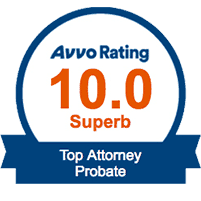As the heart of Kane County, St. Charles, IL, is a community rich in history and civic pride. When residents of this vibrant city face serious legal challenges, they deserve representation that is not only deeply familiar with the local court system but also dedicated to protecting their best interests with skill and integrity. Whether you are navigating a difficult divorce, protecting a vulnerable senior from harm, or involved in a contentious estate dispute, having a powerful legal advocate is essential.
The Law Offices of Anthony R. Scifo provides top-tier legal representation to the St. Charles community across a comprehensive range of practice areas. Our office is strategically positioned to serve clients at the Kane County Judicial Center right here in St. Charles. We combine our sophisticated legal knowledge with a steadfast commitment to our clients’ well-being. For a premier lawyer in St. Charles, IL, call our office today for a confidential consultation at 847-628-8311.

Your St. Charles Family Law Advocates
Family law matters are profoundly personal and require a legal approach that is both compassionate and assertive. We guide our St. Charles clients through these challenging transitions with a clear focus on achieving fair, lasting resolutions.
St. Charles Divorce & Mediation
Our firm expertly manages all facets of divorce and legal separation. We are highly skilled in handling complex issues such as the division of high-value assets, allocation of spousal support (alimony), and the negotiation of detailed settlement agreements. For clients who prefer a non-adversarial process, we offer skilled mediation services, providing a private and cooperative forum to resolve disputes amicably.
Protecting Children’s Best Interests
When children are involved in a family law case, their welfare is our highest priority. We provide focused counsel on the allocation of parental responsibilities (custody), the creation of practical and stable parenting time schedules, and the accurate calculation of child support to ensure your children are protected and supported.
Staunch Protection for Seniors with Elder Law Litigation
Our firm is a fierce defender of the rights and dignity of senior citizens. When an elderly resident of St. Charles is targeted by those who would exploit them, we provide the immediate and powerful legal response necessary to stop the abuse and seek justice.
Guardianship and Incapacity Proceedings
We represent families in the Kane County court system to establish guardianship for adults who have become incapacitated and can no longer make safe decisions for themselves. We also handle contested guardianships to ensure the person appointed is trustworthy and capable of protecting the vulnerable adult.
Fighting Financial Exploitation
We take swift legal action against individuals who abuse their position of trust, whether it’s a caregiver stealing funds or an agent misusing a Power of Attorney. Our experience in tracing and reclaiming stolen assets is crucial to restoring our clients’ financial security and peace of mind.
Facing a serious legal matter in St. Charles? Get proven advocacy from a firm that knows the local courts.
Call The Law Offices of Anthony R. Scifo at 847-628-8311 for a confidential consultation.
Resolving Complex Probate & Estate Disputes in St. Charles
A dispute over a loved one’s estate can cause deep family rifts and financial uncertainty. As the county seat, St. Charles is the center of all probate matters in Kane County, and our litigation team is highly skilled at navigating these sensitive disputes.
Will Contests and Estate Claims
Our lawyers represent clients in will contests, fighting to invalidate wills that were procured by undue influence, fraud, or a lack of mental capacity. We also manage all aspects of claim litigation, resolving disputes over debts owed to or by the estate.
Asset Recovery & Specialized Litigation
Our firm is highly proficient at using powerful legal tools like citation proceedings to launch an asset recovery investigation and reclaim stolen property. In the most tragic cases, we are prepared to use the Illinois Slayer Statute to prevent a killer from inheriting from their victim.
Guidance for Executors and Trustees
If you have been named as an executor of a will or trustee of a trust in St. Charles, we provide the indispensable legal counsel needed to understand your fiduciary duties, navigate the court process, and protect yourself from personal liability.
Why St. Charles Residents Choose The Law Offices of Anthony R. Scifo
Your choice of attorney is a critical one. Anthony R. Scifo’s extensive experience as a trial lawyer and as a court-appointed Guardian ad Litem gives our firm a unique and powerful perspective in complex family and probate matters. Our location and deep familiarity with the procedures of the Kane County Judicial Center in St. Charles provide a distinct advantage to our clients. Our comprehensive legal knowledge ensures that no matter how your case develops, we are prepared to advocate for your best interests with skill and determination.
Frequently Asked Questions for St. Charles, IL Residents
Where are family law and probate cases for St. Charles residents heard?
- Legal cases for residents of St. Charles and all of Kane County are handled at the Kane County Judicial Center, located at 37W777 IL-38, St. Charles, IL. Our attorneys practice regularly in this courthouse and are intimately familiar with its operations.
What is the first step if I suspect a loved one’s will is fraudulent?
- The absolute first step is to contact an experienced probate litigation attorney immediately. There is a very strict six-month deadline from the date a will is admitted to probate to file a contest. Delaying can permanently cost you your right to challenge the will.
Are there local resources for seniors in the St. Charles area?
- Yes, the St. Charles Park District offers a variety of programs and activities for active seniors at the Pottawatomie Community Center. For specific legal crises involving abuse or exploitation, however, consulting with a dedicated elder law attorney is a critical step to protect your loved one and their assets.



